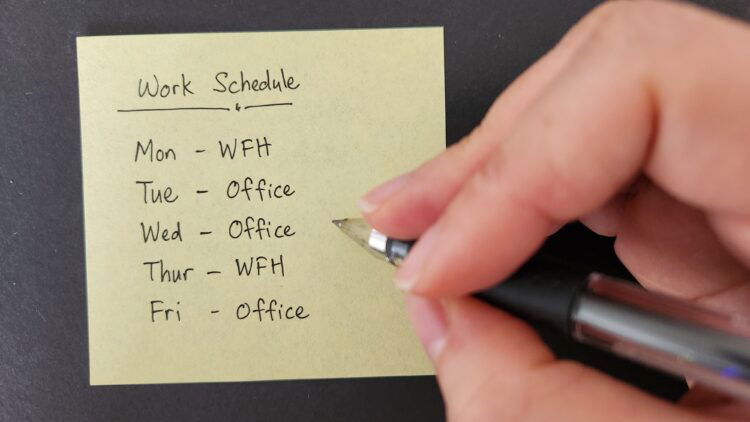UK bosses are increasingly forcing workers back into the office—but evidence suggests it could backfire.

Tesco, Boots and Barclays have joined the growing number of companies in the United Kingdom trying to force employees back to the office after years of remote working that began with the pandemic. They’re likely to be in for a battle. While some bosses have argued remote work is responsible for reduced innovation, productivity issues and lack of creativity, many employees believe it is good for their wellbeing and work-life balance.
Some organisations have already found that simply mandating that workers show up full-time or for a set number of days a week isn’t enough, and have introduced policies to discourage and even punish remote working, such as excluding people from promotion. The problem is that there’s limited evidence demonstrating that mandated in-office working is significantly better for an organisation than remote working, and plenty showing that forcing employees into the office can have a detrimental effect. But many bosses retain a presumption that working from home is worse.
Research has found that back-to-the-office mandates don’t improve company or employee performance. And other work has shown that mandates can make it much harder to retain staff, with women and millennials identified as being more likely to quit. This doesn’t just apply to rank-and-file workers either—other evidence suggests it can lead to a loss of senior talent as well. These studies, which include surveys on employee ‘stay’ intentions as well as company financial performance assessments and employee job-satisfaction data, suggest that forcing employees back to the office may result in a commercial risk.
The evidence on the effectiveness or otherwise of hybrid work is still emerging. Despite concerns about productivity, employees generally rate themselves as at least as, if not more, productive when working from home compared with the office. And early research indicates that two days a week working from home does not affect performance.
There is no clear evidence to suggest how many days in the office are the ‘right’ number, however. One study found that around two days a week in the office was the sweet spot for hybrid work. But the authors stressed the need for organisations to do their own data analysis, noting the likelihood of differences depending on each situation.
There is evidence emerging about when in-person time really does count. Microsoft has identified three critical points where this brings benefits. These are when new starters begin work, kicking off projects and strengthening team cohesion. However, while in-person work is good for building and maintaining relationships, it isn’t essential for effective collaboration as long as organisations put effort into promoting communication networks among employees.
Productivity paranoia
If all this conflicts with what bosses think, it may be because of a lack of a consistent definition of productivity. Many organisations don’t have effective systems for assessing and measuring it. Instead, managers may rely on faux productivity measures, such as time spent at a desk or in meetings.
Manchester United’s return-to-office mandate was accompanied by a justification that email traffic was lower on a Friday when people were working from home. But this assumes that emails are a good measure of productivity, and many would likely argue they are not.
Arguments for returning to the office also often appear driven by manager preference and experience. Seb James, the UK managing director of Boots, said ‘I know this has been true for me’ when arguing that informal meetings in person were more effective than formal remote meetings.
This has long been the case. Jack Nilles, the academic who first identified the potential for ‘telecommuting’, argued in the 1990s that the biggest barrier to adoption of remote work would not be technology but management attitudes and beliefs. The social psychologist Douglas McGregor called this Theory X—the idea that employees will, if given the opportunity, do as little as they can get away with; hence the need for supervision and penalties.
Today, Microsoft calls this productivity paranoia, finding that 85 per cent of leaders say that hybrid work makes it difficult to have confidence that employees are being productive. To address these concerns managers need to rethink what they mean by productivity—and how they can measure it through meaningful objectives.
This article is republished from The Conversation under a Creative Commons licence

